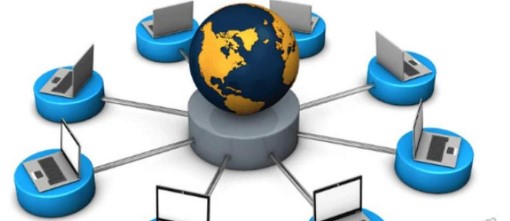The internet has fundamentally reshaped how we communicate, consume information, and connect with each other. In the digital era, the internet has become the central hub for voices, ideas, and discussions that transcend geographical boundaries. Whether through social media platforms, blogs, or news outlets, the internet serves as a digital megaphone, amplifying both individual voices and collective narratives. In this article, we will explore how the internet functions as a platform for public discourse, how it shapes opinions, and how we, as participants in the digital age, can listen to its ever-evolving pulse.
The Rise of Digital Communication
The internet’s transformation into a communication powerhouse began with the advent of social media and online forums. Platforms like Facebook, Twitter, Reddit, and YouTube have allowed people to share their thoughts, experiences, and insights with a global audience. Gone are the days when communication was limited to traditional media like newspapers, television, and radio. Today, anyone with an internet connection has a voice.
These platforms not only allow individuals to communicate but also to engage with and influence others. Through the viral spread of content, users can spark conversations, start movements, and even shift public opinion. The digital realm, once a space for trivial exchanges, has now evolved into a space where critical discussions on politics, society, and culture unfold.
The Internet as a Forum for Public Opinion
The internet is not just a space for information; it is also a dynamic environment where public opinion is formed and shaped. Public opinion is no longer confined to the pages of newspapers or the segments of television programs. Now, anyone with a smartphone can contribute to a global conversation. The shift in how public opinion is formed is one of the most significant changes brought about by the internet.
Social media has democratized discourse. Conversations that once took place in political arenas, closed-door meetings, or academic conferences are now happening online, in open spaces accessible to all. Movements like #MeToo, Black Lives Matter, and others have shown the power of online platforms to bring attention to issues that may have otherwise been ignored or marginalized.
However, the internet is also a double-edged sword. The very platforms that give rise to democratic discourse also allow misinformation, hate speech, and divisive rhetoric to flourish. The role of algorithms and echo chambers has made it easier for people to find like-minded communities, but it has also made it more challenging to find objective, balanced viewpoints.
The Amplification of Voices: From Individuals to Movements
The power of the internet lies in its ability to amplify voices. One tweet can reach millions, one viral video can change the course of a campaign, and one hashtag can galvanize a movement. This amplification of voices, while beneficial, also comes with challenges. The internet’s ability to spread information quickly has made it a battleground for attention. The more attention-grabbing, sensational, or controversial the content, the more likely it is to be shared. As a result, digital platforms often prioritize emotional and inflammatory content over thoughtful, nuanced discussions.
But beyond the noise, the internet has allowed for the rise of movements that challenge the status quo and give a platform to marginalized voices. The digital world has enabled everyday people to affect change. Whether it’s calling out injustice, organizing protests, or raising awareness for causes, the internet provides a stage for individuals to make a lasting impact.
The Role of Influencers and Content Creators
Influencers and content creators have become central figures in shaping the internet’s voice. Platforms like Instagram, YouTube, and TikTok have birthed an entirely new class of public figures who command massive followings. These influencers often set the tone for what is “trending” or “important” in the digital world.
While influencers can play a positive role in educating and informing their followers, they are also subject to criticism for perpetuating consumerism, unrealistic beauty standards, and shallow content. However, despite these criticisms, influencers are often the most in-tune with the pulse of the internet. They know how to engage with their audience, spark discussions, and generate virality.
Content creators, whether they are vloggers, podcasters, or writers, are essential to the flow of information on the internet. They provide valuable commentary, break down complex issues, and give a voice to those who are underrepresented in mainstream media.
Listening to the Digital Pulse: How We Can Be More Mindful Online
As digital participants, it’s crucial to be aware of the internet’s pulse. The internet is constantly evolving, and staying informed requires more than just browsing headlines. To truly listen to the internet’s voice, we must become critical thinkers who approach online content with discernment.
Curating Our Digital Environment
One way to listen mindfully to the internet is by curating our digital environment. This means being selective about the content we engage with and following sources that promote balanced, factual information. Instead of scrolling endlessly through social media feeds, we can seek out articles, podcasts, and videos that contribute to meaningful conversations. Engaging with a diverse range of perspectives helps to foster a more informed and empathetic worldview.
Avoiding Echo Chambers
Echo chambers are a significant concern in today’s digital landscape. They occur when individuals only engage with content that aligns with their preexisting beliefs. These digital silos reinforce biases and limit exposure to alternative viewpoints. To break free from echo chambers, we must actively seek out content that challenges our perspectives and encourages healthy debate. This can be achieved by following people from different political ideologies, cultural backgrounds, and professions.
Prioritizing Mental Health
The internet’s voice is not always a harmonious one. The constant barrage of information, the pressure to keep up with trends, and the negativity that often dominates digital spaces can take a toll on our mental health. Being mindful of our digital consumption is essential to maintaining a healthy relationship with technology. Limiting screen time, taking digital detoxes, and being selective about the content we engage with can help protect our well-being.
The Future of the Internet’s Voice
As technology continues to evolve, so will the internet’s voice. The rise of artificial intelligence (AI), virtual reality (VR), and augmented reality (AR) promises to transform how we communicate and engage online. AI-generated content is already becoming more common, raising questions about authenticity and the role of human creators in a digital world dominated by algorithms.
Moreover, the increasing commercialization of the internet raises concerns about the concentration of power among a few tech giants. Social media platforms, search engines, and other digital services are constantly collecting data on users, creating opportunities for manipulation and surveillance. The question of how to balance free speech, privacy, and regulation will be a major challenge in the years ahead.
Despite these challenges, the internet’s potential to be a force for good remains significant. The digital world offers unprecedented opportunities for innovation, creativity, and connection. Whether we are listening to the voices of activists, artists, or everyday individuals, the internet’s voice is a reflection of the diversity, complexity, and dynamism of our global society.
Conclusion: Tuning Into the Digital Pulse
The internet is a powerful tool for expression, communication, and influence. It is a place where voices, ideas, and movements can flourish, but it is also a space where misinformation and negativity can spread quickly. To listen to the internet’s voice, we must approach it with mindfulness and critical thinking. By curating our digital environments, avoiding echo chambers, and prioritizing our mental health, we can navigate the digital landscape with purpose and intention.
As the internet continues to evolve, so too will its role in shaping public discourse, social movements, and personal connections. It is up to us, as participants in the digital age, to ensure that the internet remains a space where diverse voices can be heard, where meaningful conversations can take place, and where the pulse of society can be understood and reflected.



